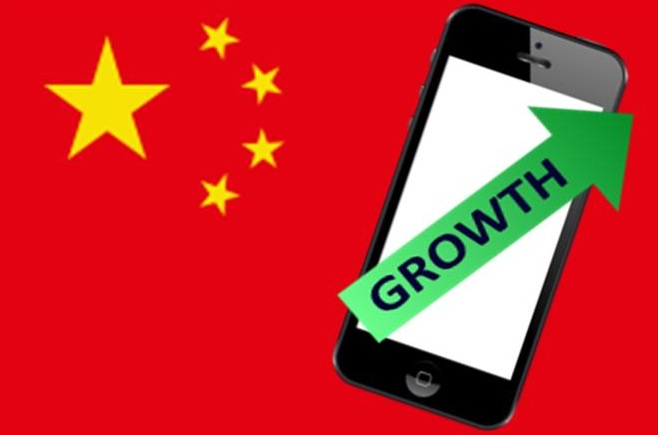Mobile payments continue to grow in China
Maverick China Research, a market research firm based in China, has released a new report concerning mobile payments and the favor they garnered among consumers in 2013. Mobile commerce has become a powerful force in China, especially as ownership of smartphones and tablets continues to rise at a rapid pace. A growing number of people are showing a strong interest in shopping online, using their mobile devices to find and purchase products that they are interested in.
Consumers are becoming more interested in online shopping
According to the report, the mobile commerce field saw a great deal of activity throughout China in 2013, especially where retail is concerned. The report notes that more retailers have come to embrace mobile payments as a way to engage a new generation of consumers that have a strong reliance on their smartphones and tablets. These retailers have developed or purchased point-of-sale systems specifically meant to accommodate mobile commerce.
Mobile device ownership grows
 The report notes that mobile devices have reached a point where they can reliably provide an enjoyable mobile commerce experience. Moreover, the number of consumers that have smartphones and other such devices has reached new heights in China, and many of these people are showing that they are willing to shop online. According to the report, approximately 30% of the mobile devices sold throughout China at the start of 2013 were smartphones.
The report notes that mobile devices have reached a point where they can reliably provide an enjoyable mobile commerce experience. Moreover, the number of consumers that have smartphones and other such devices has reached new heights in China, and many of these people are showing that they are willing to shop online. According to the report, approximately 30% of the mobile devices sold throughout China at the start of 2013 were smartphones.
3G helps mobile commerce prosper
Mobile Internet has also become more reliable in China over the past year. China’s 3G networks have been bolstered by telecommunications companies and an estimated 200 million people make use of these networks on a regular basis. A fast and reliable Internet connection is needed for an enjoyable online shopping experience and 3G has helped mobile commerce establish a stronger presence in China than it had in previous years.
BWild |
December 30, 2013
Kiip releases information on growing mobile revenues
Kiip, a mobile marketing firm, has released information concerning the top mobile commerce brands. The data from Kiip highlights which brands have found the most success in mobile commerce in 2013. Retailers have taken a strong interest in the mobile sector due to the rapidity at which smartphone and tablet ownership is going. Consumers have been showing favor for mobile shopping because of its convenience and the deals that many retailers have been offering specifically to mobile consumers.
Specialty retailers find major success in mobile space
According to the information compiled by Kiip, the retailers leading mobile commerce are JackThreads, Rue La La, Groupon, and Fab. These retailers have a significant lead over other brands when it comes to mobile revenue generation. Notably, both Amazon and eBay have seen relatively little mobile growth when compared to other retailers despite how much effort they have put into mobile commerce. Smaller, more specialized retailers seem to have been able to engage consumers more effectively with their mobile initiatives.
Mobile traffic is on the rise
 Kiip notes that mobile traffic to retail sites has grown by an average of 39% over what it had been in 2012. Consumers are flocking to mobile retail sites in order to shop, especially during the holiday season. Retailers have been reporting a significant increase in mobile sales during the 2013 holiday shopping season as they find success with their mobile engagement initiatives.
Kiip notes that mobile traffic to retail sites has grown by an average of 39% over what it had been in 2012. Consumers are flocking to mobile retail sites in order to shop, especially during the holiday season. Retailers have been reporting a significant increase in mobile sales during the 2013 holiday shopping season as they find success with their mobile engagement initiatives.
Mobile marketing is gaining prominence
As mobile commerce grows, mobile marketing is quickly becoming more important for businesses. Retailers that have not invested in mobile marketing have been unable to effectively engage consumers on smartphones and tablets. This has limited their appeal to those interested in mobile commerce. Mobile-centric consumers are more likely to engage in mobile marketing initiatives than traditional marketing due to the more interactive nature of the former.
 The report notes that mobile devices have reached a point where they can reliably provide an enjoyable mobile commerce experience. Moreover, the number of consumers that have smartphones and other such devices has reached new heights in China, and many of these people are showing that they are willing to shop online. According to the report, approximately 30% of the mobile devices sold throughout China at the start of 2013 were smartphones.
The report notes that mobile devices have reached a point where they can reliably provide an enjoyable mobile commerce experience. Moreover, the number of consumers that have smartphones and other such devices has reached new heights in China, and many of these people are showing that they are willing to shop online. According to the report, approximately 30% of the mobile devices sold throughout China at the start of 2013 were smartphones.
 Kiip notes that mobile traffic to retail sites has grown by an average of 39% over what it had been in 2012. Consumers are flocking to mobile retail sites in order to shop, especially during the holiday season. Retailers have been reporting a significant increase in mobile sales during the 2013 holiday shopping season as they find success with their mobile engagement initiatives.
Kiip notes that mobile traffic to retail sites has grown by an average of 39% over what it had been in 2012. Consumers are flocking to mobile retail sites in order to shop, especially during the holiday season. Retailers have been reporting a significant increase in mobile sales during the 2013 holiday shopping season as they find success with their mobile engagement initiatives.